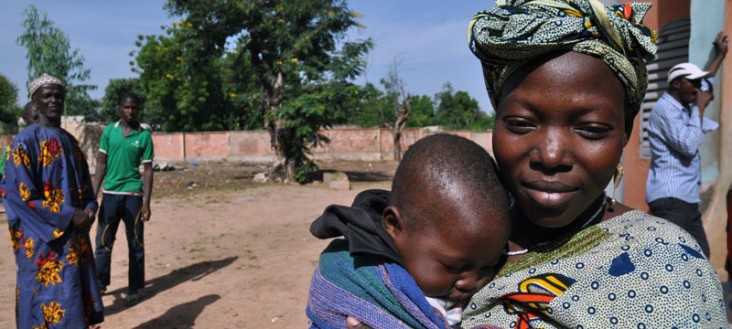- What We Do
- Agriculture and Food Security
- Democracy, Human Rights and Governance
- Economic Growth and Trade
- Education
- Ending Extreme Poverty
- Environment and Global Climate Change
- Gender Equality and Women's Empowerment
- Global Health
- Water and Sanitation
- Working in Crises and Conflict
- U.S. Global Development Lab

As part of the U.S. Agency for International Development's (USAID's) efforts to end preventable child and maternal deaths within a generation, the Health Research Challenge for Impact (HRCI) researches and evaluates technologies and approaches across multiple health disciplines and within multiple countries. HRCI applies research findings and evaluation results to help establish global prevention and treatment guidelines for effective maternal, newborn, and child health and nutrition programs.
The strategic objective of HRCI is to accelerate the development and introduction of new and refined, feasible, culturally acceptable, low-cost, preventive, and curative interventions for the main causes of maternal, newborn, and child deaths worldwide.
HRCI works toward this goal through numerous services provided to partner countries and institutions:
- Conducts multi-disciplinary, multi-country research; evaluations; health services and operations research; and introductory activities with a wide range of existing and new partners and institutions.
- Develops, tests, and refines new and improved tools, technologies, approaches, interventions, and policies.
- Provides the evidence base for effective maternal, newborn, and child health and nutrition programs and works with WHO and other partners to develop global prevention and treatment guidelines, standards, and norms.
- Engages local partners and contributes to national evidence-based decision-making and program improvement.
HRCI is a $19 million, Leader with Associates (LWA) cooperative agreement, extending from September 2009 to September 2016 and active worldwide. Johns Hopkins University leads the program, and associate partners include the International Centre for Diarrheal Disease Research – Bangladesh (ICDDR-B), Save the Children – USA, Makerere University, and Muhimbili University of Health and Allied Sciences – Tanzania (MUHAS).
To learn more about HRCI, visit the program website.







Comment
Make a general inquiry or suggest an improvement.